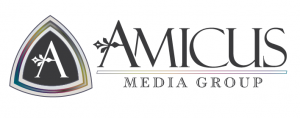California Supreme Court Rules that Pharma Companies can be held liable for Generic Drug Labels
In a controversial move, the California Supreme Court has ruled that pharmaceutical companies can be held responsible for inadequate labels on generic drugs, even after they have stopped manufacturing them or sold the drugs to other companies. The contentious 4-3 decision held that large pharmaceutical companies such as Novartis can be sued for failing to update warning labels on generic drugs even though the generic drug is manufactured by a different company. The suit arose after a mother of twins took a generic version of Brethine (Terbutaline). Brethine, a name-brand asthma medication being used to suppress premature labor, was produced by Novartis until 2001. In 2007, aaiPharma Inc, bought the rights to manufacture the generic version of the drug. The drug, according to the lawsuit, is believed to have caused developmental delays and autism in the twins. In 2011, the US Food and Drug Administration warned against giving the drug to pregnant women for a prolonged period. The drug was designed to relax muscles helping to open restricted passageways during an asthma attack. Prior to 2011, doctors believed that it could also relax uterine contractions in the hopes of preventing pre-term labor. The FDA did not approve the drug for this use, but it is believed to have been used on more than 260,000 women.[1] While no direct link between the drug and autism has been established, the FDA issued a warning that it is unsafe to be taken while pregnant.[2]
The California court found that brand-name manufacturers are responsible for strengthening a warning label and that the duty to warn consumers over potential harmful effects is not relieved by another company manufacturing a generic version of the drug. Ultimately, the California Supreme Court has opened the door to sue the name-brand manufacturer of a drug for failing to update a warning label if there is foreseeable harm to the consumer.
The dissenting opinion in the ruling argued that the decision was contrary to rulings across the United States dealing with the same issue. Many courts have refused to hold a drug company responsible for previously manufacturing a particular drug, thereby releasing liability once they sold the rights to manufacture the drug. The responsibility, according to the dissent, is absorbed by the new company. It is the responsibility of the current manufacturer to update all warning labels as the need arises.
Need to Know More? Have clients contacted you about potential lawsuits? Amicus Capital Services and Amicus Media Group are dedicated to bringing you the latest information on Mass Tort Litigation and Class Action Lawsuits. We can help you with financing and building a comprehensive digital and off-line campaign to reach potential clients. We care about you and can help you help your clients. Contact our offices today to learn about national and regional case acquisition.
This blog post does not contain legal or financial advice. Author and publisher disclaim any and all warranties, liabilities, losses, costs, claims, demands, suits, or actions of any type or nature whatsoever, arising from or any way related to this blog, the use of this blog, and/or any claim that a particular technique or device described in this blog.
[1] https://www.ncbi.nlm.nih.gov/pmc/articles/PMC107840/
[2] http://autism.lovetoknow.com/Terbutaline_and_Autistic_Spectrum_Disorders
